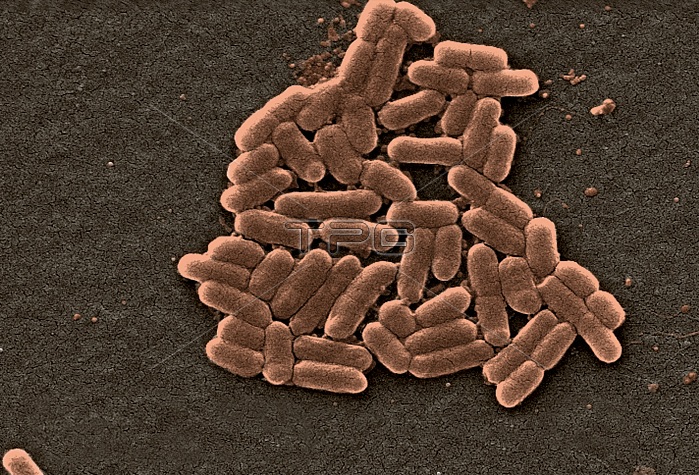
SEM show a number of gram-negative Escherichia coli bacteria of the strain O157:H7, which is one of hundreds of strains of this bacterium. Although most strains are harmless, and live in the intestines of healthy humans and animals, this strain produces a powerful toxin, which can cause severe illness. E. coli O157:H7 was first recognized as a cause of illness in 1982 during an outbreak of severe bloody diarrhea; the outbreak was traced to contaminated hamburgers. Since then, most infections have come from eating undercooked ground beef. An estimated 73,000 cases of infection, and 61 deaths occur in the USA each year. Person-to-person contact in families and child care centers is also an important mode of transmission. Infection can also occur after drinking raw milk, and after swimming in, or drinking sewage-contaminated water. Consumers can prevent E. coli O157:H7 infection by thoroughly cooking ground beef, avoiding unpasteurized milk, and washing hands carefully. Escherichia coli is a Gram-negative, rod-shaped bacterium that is commonly found in the lower intestine of warm-blooded organisms (endotherms). Magnification @ 6836x.
| px | px | dpi | = | cm | x | cm | = | MB |
Details
Creative#:
TOP22225255
Source:
達志影像
Authorization Type:
RM
Release Information:
須由TPG 完整授權
Model Release:
N/A
Property Release:
No
Right to Privacy:
No
Same folder images:

 Loading
Loading